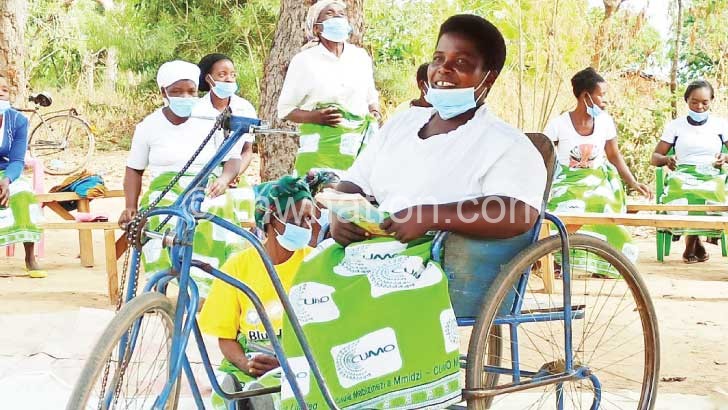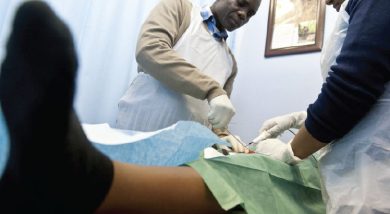Saving to beat poverty
Lydia Kadzidye was born with a mobility disparity but that does not stop her from dreaming big.
The 39-year-old aspires to open a wholesale shop in Kaponda Village, Traditional Authority Mwase in Kasungu, to better support herself and her two children.
She now survives on making and mending garments, thanks to tailoring skills she learnt at Magomero with support from the Malawi Council for the Handicapped (Macoha) in 2005.
“My condition shouldn’t make me a beggar. I always tell myself to work hard for my good and the well-being of my family. I am a married woman with children who depend on me,” she states.
Kadzidye’s tailoring business took off to a patchy start as the proceeds could not meet her needs.

“At first, I used to sew clothes just to find daily food. But later, I realised that time was not on my side and I had to grow the business,” she explains.
Kadzidye joined Umodzi Village Savings and Loans (VSL) group to increase access to business insights and loans.
Through the savings and loans group, she has grown her business.
Since March, her profits have been promising and she has moved from a grass-thatched hut to a new corrugated roofed house.
Besides, she sews more clothes for sale in busy markets surrounding her village.
“I plan to open a wholesale for various items and build a better structure for my tailoring shop. I want my children to go to college and receive all the support they need from this expanding business,” she adds.
Umodzi VSL started in February with support from Cumo Microfinance project—Financial Access for Rural Markets, Smallholder Farmers and Enterprise (Farmse).
The group has 23 members. Their chairperson Brown Gondwe says facilitators from Cumo Microfinance—founded by Concern Universal, now United Purpose (UP)—have made a huge impact on the success of the VSL group.
“Currently, many members have business management skills and they own tearooms and benches where they sell tomatoes and other farm produce. Others repair motorcycles and bicycles. They are putting their business management knowledge to use,” she states.
The group borrowed K820 000 from Cumo which they shared to boost their business capital.
“So far we have paid back almost half of the loan. The way things are going, we might as well pay the remainder sooner than expected,” says Gondwe.
Group village head Kaponda is happy that many households that were living hand to mouth are doing businesses to lift themselves from poverty.
Cumo Microfinance project coordinator Sophie Sikwese says the VSL groups, also known as village banks, are reaping the dividends of the business expertise they get.
“The business management skills aside, our facilitators, who live in the communities where they work, teach VSL members the importance of having insurance cover in case of emergencies,” she explains.
Cumo has supported about 105 groups in Kasungu, one of 18 districts where it works.
Currently, it is widening its reach in six other districts as part of the Farmse project.
However, Sikwese is concerned about low men involvement in savings and loans groups across the country.
Farmse knowledge management and communications officer Golie Nyirenda says the programme, funded by the International Fund for Agricultural Development (Ifad), offers support to financial service providers currently expanding their reach in rural areas.
“The programme aims to enhance the resilience and sustainable livelihoods of rural households. One way of doing this is by involving financial service providers to provide loans and expertise to small-scale business entrepreneurs,” she says.
According to the Reserve Bank of Malawi, about 80 percent of Malawians have no bank accounts.
However, the VSL groups, like mobile money technology, has reduced financial exclusion in rural communities, where 84 in every 100 Malawians live, according to the 2018 census.





